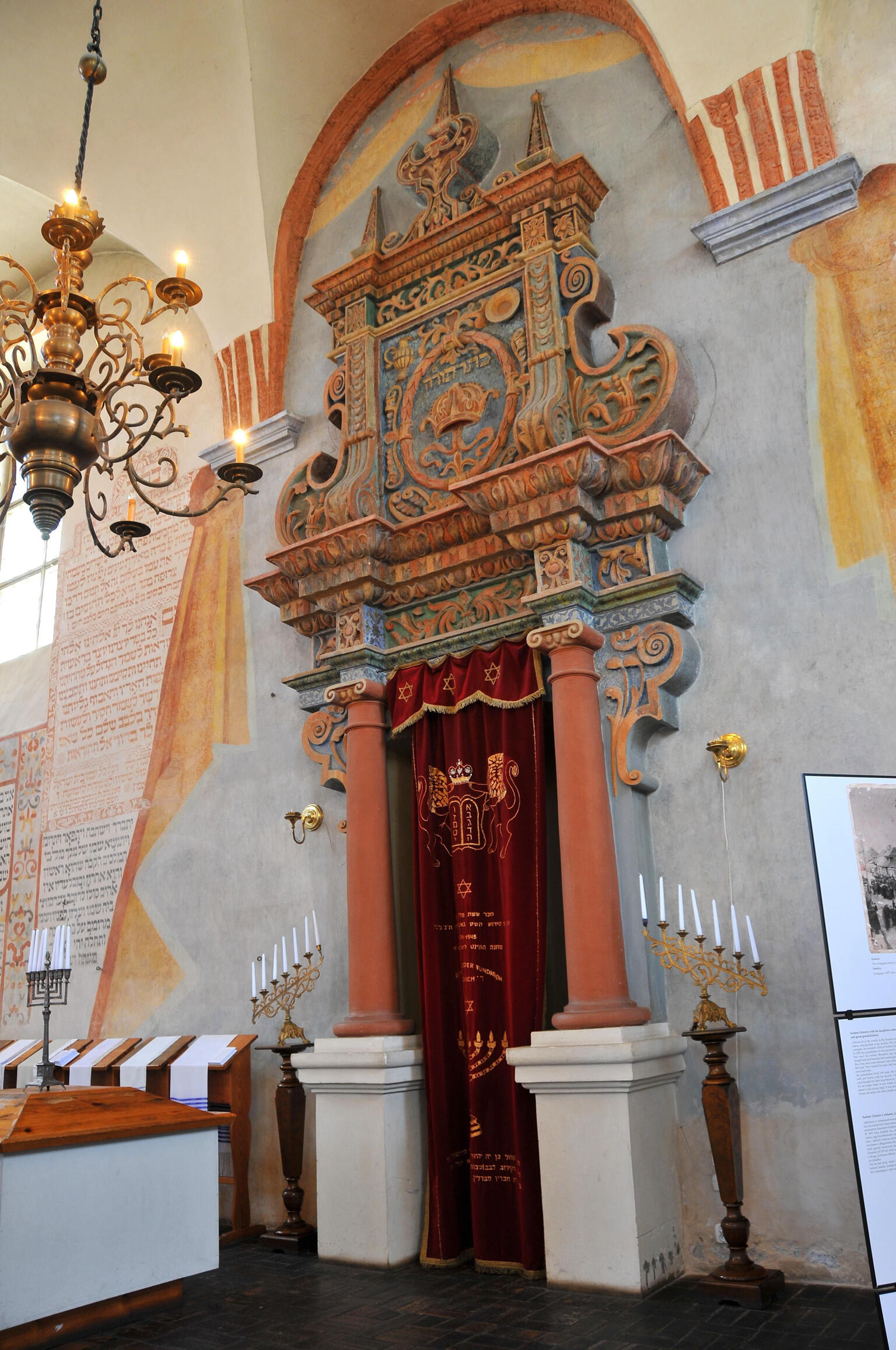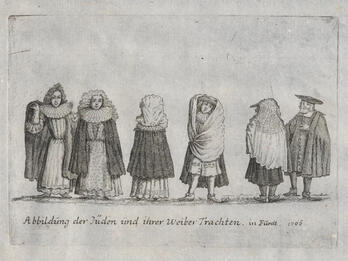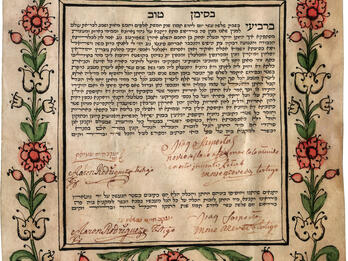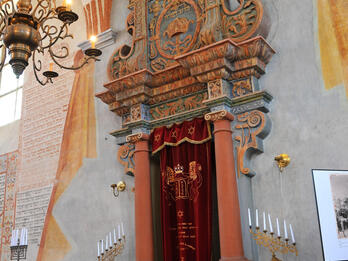Takkanot (Regulations)
18 Elul 5502 [1742]
Regulations Regarding Religious Banquets, Gifts, and Prayer Leaders
- First of all, in fear of God, at a convention and gathering of a great meeting of the “princes” and “counts” and heads and leaders and the “dukes” of the elders of the community, all agreed to choose good and necessary [word illegible in manuscript] customs . . . in accordance with the time and moment of this age, when the cost of living has increased, and some householders have collapsed, and they are too ashamed to ask and demand their portion themselves. Thereupon they decided to choose honest men to go to the doors of generous people to ask for sustenance for the decent poor. They will distribute the funds along with the rotating chairman of the month, but only to honest poor people as they see fit.
- It was agreed not to give the third invitation [lit., “obligation” to read the Torah] on the holy Sabbath except to a chief religious judge, as the heads the congregation shall resolve, or to one of the leaders of the congregation. The sixth [invitation to read the Torah] shall be given only to one of the leaders of the congregation.
- One may not send honey, and certainly not kofiner [Yiddish: fat fowl] on weekdays to any guest at all, no matter who he is, except the parnasim [community leaders] or the trustees of the land. On the Sabbath one may do so solely to a leader from among the heads of the community, and then only if he is in the synagogue. The beadle must warn the guest that if he is given some honor he should not go to any person except to the monthly chairman. Individuals are not permitted to send honey and other such items, either on weekdays or on the Sabbath.
- One should not send conserves to any woman, except to the rabbi’s wife or the midwife.
- One may not invite more than a quorum [of ten] to a circumcision feast, except for those prohibited by the Torah [from giving oaths in court, i.e., blood relatives], and the godfather, and the circumcisers, and one beadle, and one trustee, and one servant, and three mendicants, in accordance with their turn. However, one who has an annual income of one hundred gold pieces has the right to invite two quorums, aside from the people mentioned above. For wedding feasts, one may invite only two quorums, aside from blood relatives and the best men and the in-laws, that is to say the father of the groom and the father of the bride and the relatives of the fathers of the bride and the groom, and one trustee, and one beadle, and one servant, and five mendicants, by turn. One is not permitted to hold a banquet except at night after the ceremony, and the day afterward, which includes the following night. Thereafter he is not permitted to hold any feast to entertain the groom and bride, and it is forbidden for any person to go to any banquet unless the beadle has invited him. Anyone who has not been invited by the beadle is not permitted to go. Let there be no disagreement over a wedding, whether it involves someone who is wealthy or not.
- If someone does not hold a wedding in our community, no one is permitted to send him the special sum given to a bridegroom, and he is warned not to invite anyone.
- Regarding all aspects of the aforementioned regulations, the beadles have taken an oath not to violate even one of them, and even if the monthly chairman orders him to do so, he shall not agree or pay heed to him.
- From the New Moon of Kislev until the New Moon of Adar, no one is to be given the honor of delivering a sermon in the synagogue. The same applies to the other holidays of the year, unless there is the consent of the whole congregation, and any two people may object.
- A guest prayer leader shall not pray in the synagogue on the Sabbath without the unanimous agreement of the entire community. Even for the Greeting of the Sabbath prayer session, he must always ask the heads of the community.
Addition to the Regulations
Regarding the regulation that a visiting prayer leader should not be allowed to pray without the consent of the congregation, “something that has been said need not be repeated, except because of a new development that has arisen” [see e.g., b. Sotah 3a]: It has been agreed by all the nobles of the congregation not to allow any visiting prayer leader at all to pray on the Sabbath and on holidays, not even the Greeting of the Sabbath, even if the entire congregation agrees, perish the very thought of letting any visitor serve as prayer leader, because all of the above was accepted at the meeting of the nobles of all the holy congregation on Monday 18 Elul 5532 [apparently a scribal error for 5502].
Translated by
.
Credits
The Jewish Community of Tykocin, “Takkanot (Regulations)” (minutes, Tiktin, 1742 [18 Elul 5502]). Published in: Pinkas kehal Tiktin, 381–566, ed. Israel Halpern and Mordekhai Nadav, vol. 1 (Jerusalem: The Israel Academy of Sciences and Humanities, 1996), pp. 46–47 (no. 87).
Published in: The Posen Library of Jewish Culture and Civilization, vol. 5.







